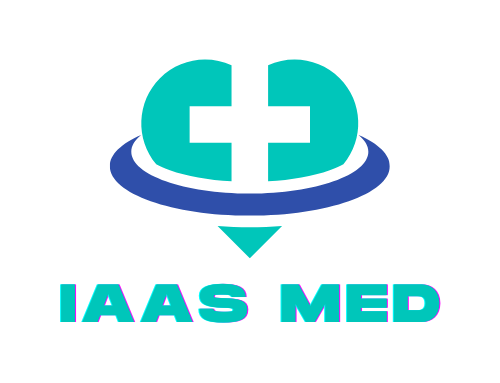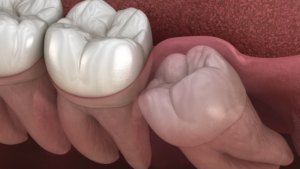Even before they miss their periods, many women might be interested in finding out if they are pregnant. Fortunately, there are a few signs that can point to pregnancy.
In this article, we’ll explore the top 5 pregnancy signs that can occur before a missed period and can tell you that the baby may be on its way!
For example, I noticed three out of five early pregnancy symptoms before missing my period.
Key Takeaways
What are the Top 5 Early Pregnancy Signs?
1. Tender and Swollen Breasts
This can be one of the earliest pregnancy signs, even before a missed period. Many women notice their breasts feeling tender, swollen, or sore as early as one to two weeks after conception.
This sensitivity is primarily due to hormonal changes in the body, particularly an increase in estrogen and progesterone, which prepare the breasts for milk production. The discomfort may feel similar to premenstrual symptoms but often more pronounced.
2. Nausea and Vomiting
Commonly known as morning sickness, nausea, and vomiting can be pregnancy indicators, impacting roughly 70-80% of pregnant women to some degree. Despite its name, morning sickness can occur at any time of the day or night and is thought to be related to rising levels of the hormone hCG (human chorionic gonadotropin). This symptom may appear as early as two weeks after conception, though it typically becomes more noticeable around the sixth week of pregnancy.
Noel M. Lee: it is widely accepted that gestational vomiting results from various metabolic and endocrine factors, many of placental origin. The most implicated factor is human chorionic gonadatropin (hCG).
For example, I began experiencing morning sickness about three weeks after conception, which is when I first realized I was pregnant.
3. Fatigue
Feeling unusually tired or fatigued is another common early pregnancy sign. This fatigue can be overwhelming and is caused by high levels of the hormone progesterone, which is essential for maintaining the pregnancy. Also, the body’s increased need to produce more blood to supply oxygen and nutrients to the developing fetus can contribute to tiredness.
Christine H.J. Won: Most epidemiologic studies suggest there is an increased need for sleep during pregnancy. The high levels of human chorionic gonadotropin and progesterone that are required to maintain pregnancy are also soporific and thermogenic, promoting daytime sleepiness and early sleep onset.
Many women report feeling exhausted before they even know they are pregnant. This was also my case, you know how people say now you eat for two? Well, the same goes for sleeping when you’re pregnant – it feels like you’re sleeping for two too!
4. Cramping and Spotting
These early pregnancy sign occur when the fertilized egg implants itself into the uterine wall. This phenomenon, known as implantation bleeding, typically happens around 10 to 14 days after conception, which is close to the time when a woman might expect her period. But, implantation bleeding is usually much lighter and shorter than a regular period.
While not all women experience this, it is a sign to look out for.
5. Mood Swings

The hormonal changes that start early in pregnancy often lead to mood swings. Women might find themselves feeling unusually emotional, irritable, or weepy even before their missed period. These emotional fluctuations are normal and can be attributed to the significant hormonal shifts that are preparing the body for pregnancy.
I think this might have been one of the first signs that I was pregnant, but since it’s also a common symptom of PMS, I didn’t initially attribute it to pregnancy. It wasn’t until two other symptoms appeared that I put two and two together. Also, my partner seemed to like this symptom the most, as he felt it even more than I did!
How to tell the difference between early pregnancy signs and the PMS?
Pregnancy symptoms that most often appear before your period are strikingly similar to PMS side effects, yet you can still notice some distinctions. For example, if you’re pregnant and you have tender breasts, you’ll mainly notice changes to your areolas (they’ll look bigger, darker, and bumpier).
In terms of nausea and vomiting, it is difficult to distinguish between the two, although some women do not experience these symptoms during PMS, so it should be easy for them to recognize that something is different this time.
Unlike menstrual bleeding, implantation bleeding usually takes the form of light spots (pink or brownish), lasts for 1-3 days, and happens about a week ahead of the scheduled period. It usually lacks the flow, duration, and intensity of a menstrual period, though it may also be accompanied by mild cramping akin to menstrual cramps.
When to Take a Pregnancy Test?

For the most accurate results, it’s generally recommended to take a pregnancy test after a missed period. However, since many modern tests are sensitive enough to detect hCG levels as early as seven days before a missed period, women experiencing early pregnancy symptoms may choose to test sooner.
It’s important to note that testing too early can result in a false negative. If the first test is negative but symptoms persist and you don’t get your period, consider retaking the test a week later. You can also consult a healthcare provider for a blood test, which can detect pregnancy earlier than urine tests.
FAQs















